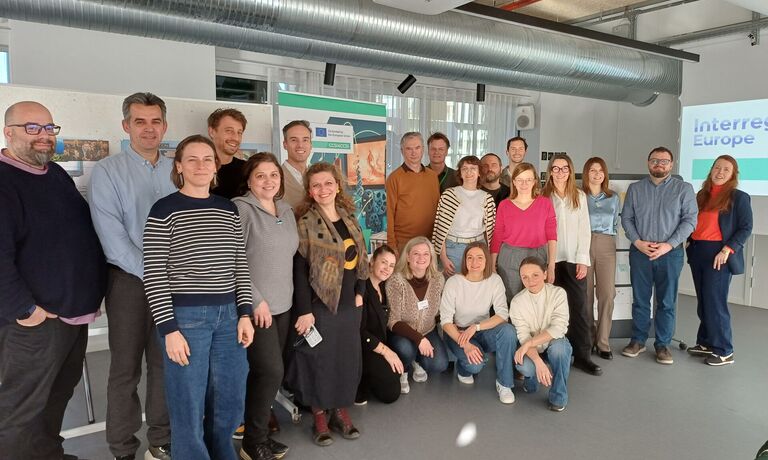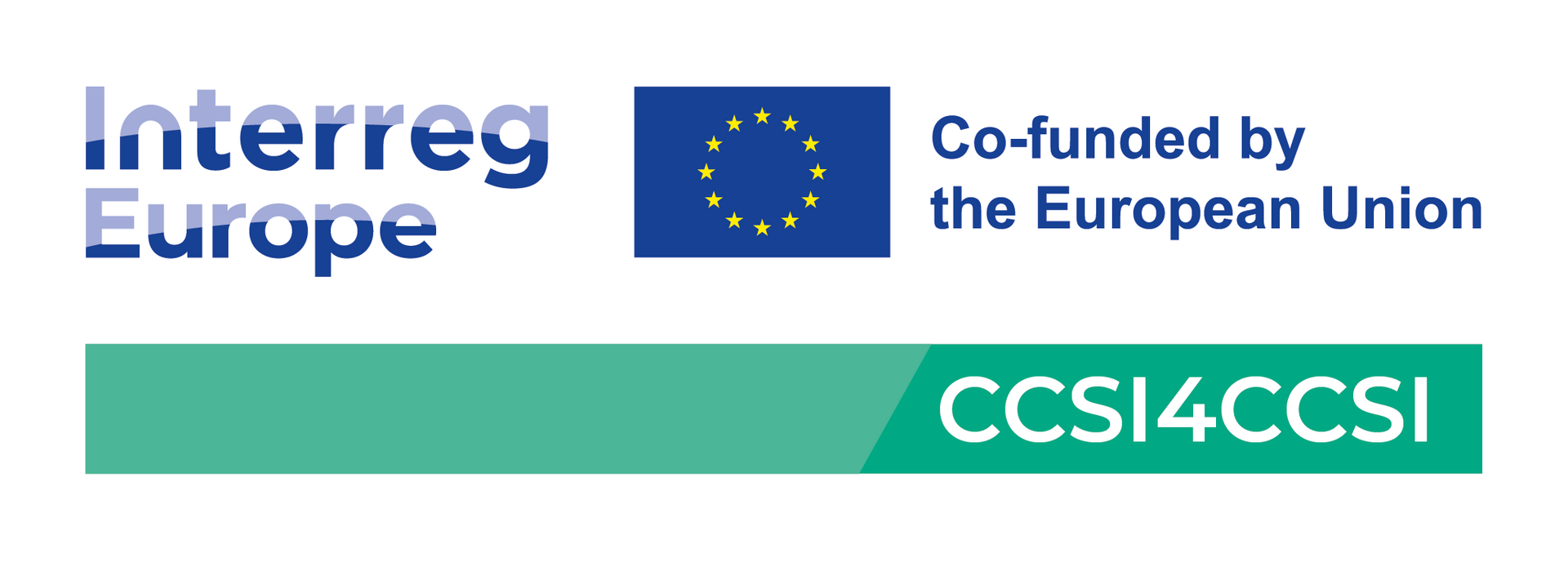- About us
About us
- News
- Projects
- Calendar
- Contributors
Contributors
- Blog
- Digital Inovation Hub
- Living Lab
- Contact

The second Exchange of Experience for the CCSI4CCSI project (Cultural and Creative Sectors and Industries for Collaboration, Competitiveness, Sustainability, and Innovation) took place from March 18 to 20, 2025, in Kolding, Denmark, a Creative City of Design within the UNESCO Creative Cities Network (UCCN). The event, organized by Business Kolding, featured a well-structured program that included presentations from local creative ecosystem actors, good practices from participating regions of the CCSI4CCSI project, a session sharing findings from the CCSI needs research, an interactive co-creation workshop, and study visits.
This second transnational meeting focused on the exchange of best practices related to the digital transition of Cultural and Creative Sectors and Industries (CCSIs).
On Day 1, the event took place at the start-up hub hosted by Business Kolding, located in the harbor warehouse (Pakhuset). The participants were warmly welcomed by Mr. Morten Bjorn Hansen, CEO of Business Kolding.
Ms. Anthoula Nikopoulou, representing the Lead Partner of the CCSI4CCSI Project, Region of Central Macedonia, provided a brief introduction, offering an overview and the current status of the project. Following this, Mr. Mikael Sorknaes, CEO of “Kolding Kommune,” gave an inspiring presentation on design thinking, providing a fresh perspective on the municipality's vision "Co-Design 4 Life" and its role in the development of the cultural and creative sector in the region, followed by engaging talks on collaborative community design.
Representatives from stakeholder organizations in each of the participating regions shared compelling case studies. These included initiatives on transformative digital innovation in CCIs from the Aristotle University of Thessaloniki (AUTH), as well as the DIGI-ORCH project from "KIKLO," a spin-off company of AUTH, which facilitates the development of a model system for visualizing information about cultural activities and events (Central Macedonia, Greece). Additionally, Algebra University (Croatia) presented a case focusing on the development of digital skills for creative professionals, while MDT (Kolding, Denmark) highlighted the digitalization and restoration of the Royal Yacht Dannebrog, showcasing expertise in lightweight designs and 3D printing, particularly in creating complex, tailor-made products for the entertainment industry. MIK (Małopolska region, Poland) presented the Virtual Museums project, aiming to digitalize and preserve valuable cultural heritage items from museums, and Howest University of Applied Sciences in Kortrijk (Flemish Region, Belgium) showcased Devine’s activities empowering students in digital innovation.
In the afternoon, participants took part in study visits, where they explored digital innovations and interactive experiments that integrate both physical and digital materials, as well as open-source software and electronics in various projects. Notable contributions from innovation experts from Techsoft, Play X Tech, and Nexttech enriched the visit.
Day 2 began with a cultural city walk guided by the “Museum Kolding” and was followed by a co-creation workshop at the vibrant and creative “Kolding Design School.”
Ms. Anette Flinck, International Relations Manager at the Kolding Design School, welcomed participants with a look back at the school’s history and an overview of its current educational offerings.
This was followed by a presentation on the “FLUKS” project by Ms. Louise Aagaard and Joan Pedersen, both from the school. They shared their initiatives aimed at engaging young people in cultural events through volunteer involvement.
The CCSI4CCSI project partners then presented their findings from research assessing the needs of the Cultural and Creative Sectors and Industries. Working alongside local stakeholders, participants formed teams to discuss the research results, analyze trends and findings, assess their relevance, and collaboratively co-design a monitoring framework with the appropriate tools. The workshop was facilitated by Ms. Anne Mette Bjerre Hansen, an experienced designer with a strong background in CCIs, particularly in the fashion industry.
On Day 3, the project’s Steering Committee convened to review the actions of the second semester, discuss the preparation and submission of the second progress report, and plan the next steps in the project’s development.
